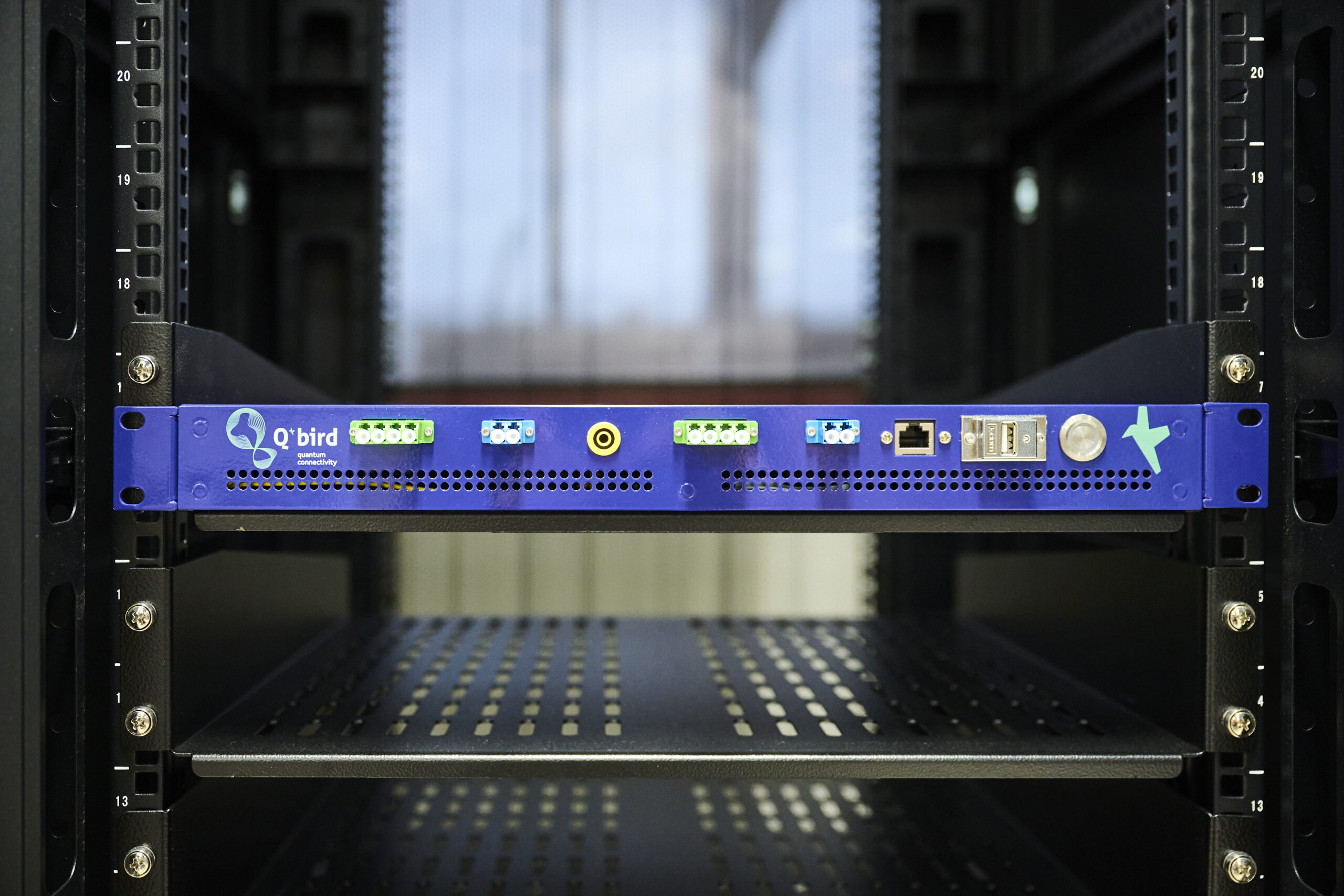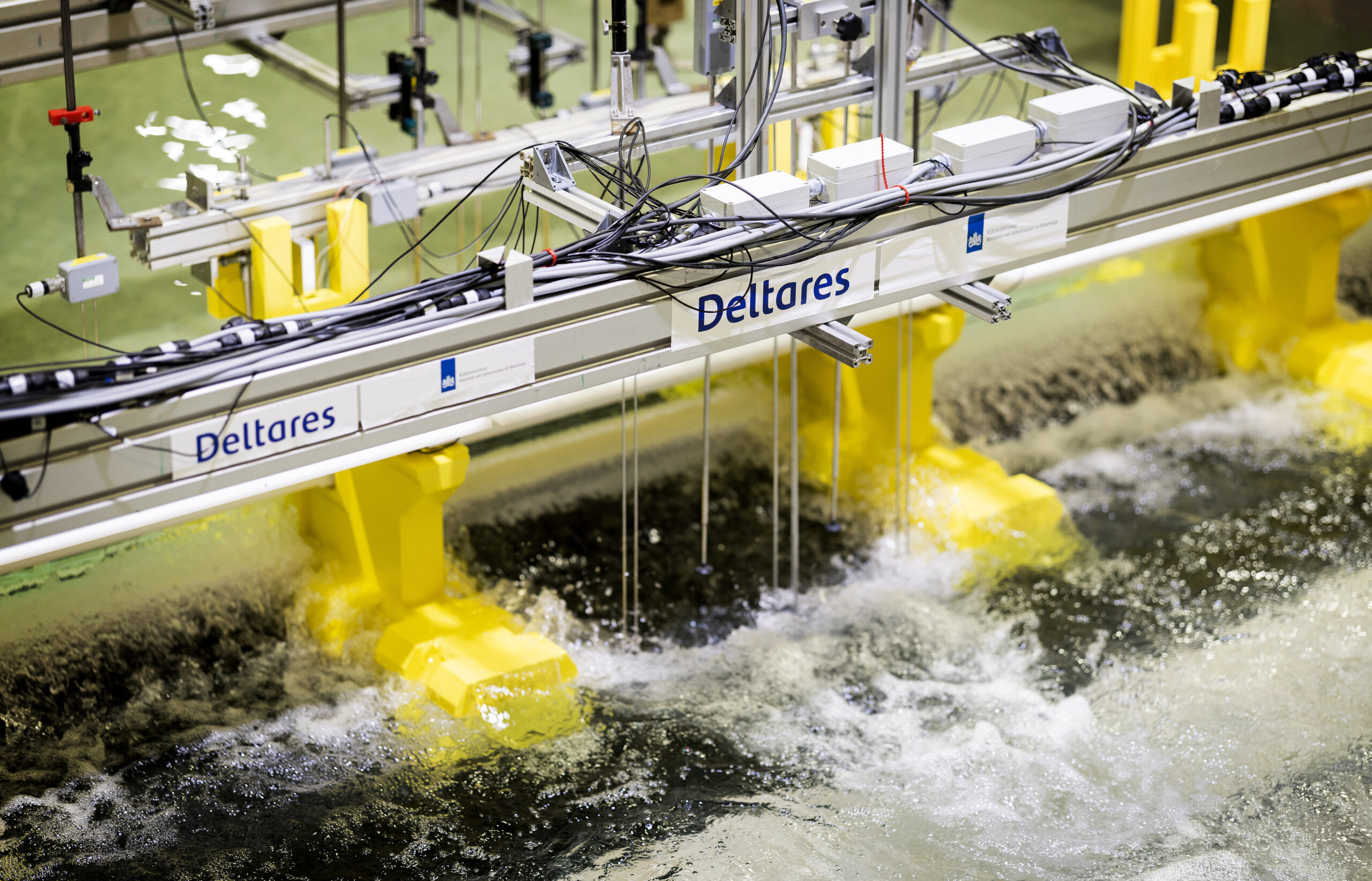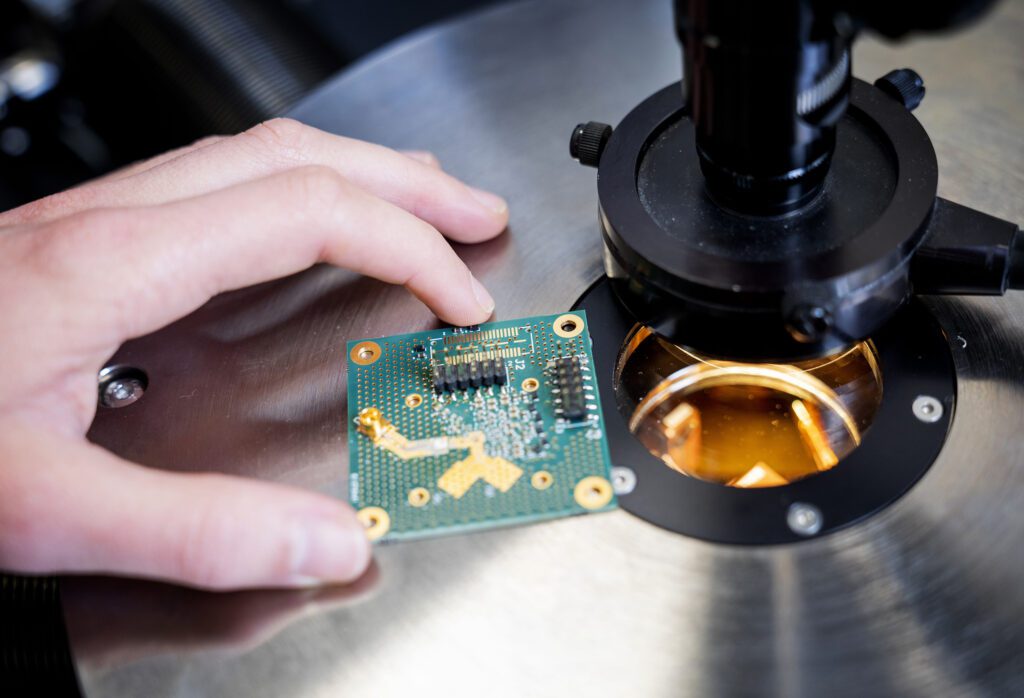
Effective collaboration with the business community is vital when it comes to ensuring that new technology reaches society. Delft University of Technology has always worked closely with companies, but the way in which this is done is changing. There are countless initiatives on the TU Delft Campus that attest to this, says Rector Magnificus Tim van der Hagen. ‘Innovation is very different from what it was twenty years ago.’
QuTech and RoboValley: these are great examples of how the worlds of business and science work together today, says Van der Hagen. A shift is currently taking place from contract research ‘commissioned by’ to what he calls a ‘fusion’, a new form of public-private partnership in which there is a much greater overlap between fundamental research and the development of new products by companies.
Quantumcomputer
At QuTech, researchers from various faculties, TNO and companies are working on the quantum computer at the same time. ‘There are people working on applications that run on software that has not yet been developed, that uses mathematics that has not yet been developed, on a computer that has not yet been developed, made from materials that have not yet been developed, based on a technology that we do not yet understand,’ summarises Van der Hagen.
It is all happening at the same time, in the same place. The chain that starts with research and leads to an application no longer exists. ‘It has become a web.’ The same is happening at RoboValley. Companies are not sure exactly what robotics and artificial intelligence can mean for them, but they do know that they have to be in Delft for this. ‘Let’s work together,’ they think. ‘Let’s take stock of the situation together.’
Retail
The collaboration with Ahold Delhaize in the AIR Lab is a good example of this. Ahold Delhaize wants to know what artificial intelligence and robotics will mean for its supermarkets and distribution centers. ‘That’s why they are collaborating with us for five years.’ New applications of technology bring new opportunities, for example, to the Albert Heijn stores, distribution centers and other brands of the parent company.
Simultaneous collaboration. Van der Hagen emphasises that this approach is still very new. One of the main differences with how things worked in the past is that companies are turning to Delft University of Technology with less clearly defined problems.
Mobility
Take transport companies. They no longer just think: the train, bus or tram has to run even better on time, explains Van der Hagen. ‘That’s still important, but if you want to survive the next twenty years, you need to know what the mobility system will be like in the future.’ How do people travel the most comfortably and quickly from A to B, including the first and last mile? “That leads to very different research.”
Delft University of Technology not only has a great deal of knowledge about this, but with the thirty thousand people who come to the TU Delft Campus every day, the area is also a very interesting testing ground for that ‘first and last mile’.
X!Delft
These complex challenges therefore require a new way of collaboration, as is increasingly happening at the TU Delft Campus. X!Delft has just been launched for large companies; a programme that gives them access to all the new developments at Delft University of Technology.
‘Heineken, for example, was only working with us on the composition of beer,’ says Van der Hagen. Through X!Delft, they are also learning about the latest developments in the field of robotics, artificial intelligence and water management in logistics. ‘It goes so much further than that one project.’ Companies are getting involved in the “large-scale developments” that will be taking place over the next ten to fifteen years.
Independent
Our researchers and students also benefit from this approach. It’s great fun for them because they get to work on very good, relevant questions from the business community. It also leads to more independence, because they are no longer “commissioned” to do the work.
Van der Hagen expects that this new form of collaboration will also materialise on the TU Delft Campus. Tech companies such as ABB are increasingly establishing themselves on campus and there are more and more field labs. In addition, Delft University of Technology is working on new ways to accelerate the construction of commercial buildings, which should also lead to more business activity.
Future
If you come here in ten years’ time, you will be struck by a number of things: we will be doing world-class research and providing world-class education. But the contribution made by companies will also be much more visible.
There will be much more of an overlap. ‘It won’t be a business park, but it won’t just be a university; it will be a combination of the two.’ Companies will be increasingly drawn to the community on the TU Delft Campus. But not everyone will be allowed to set up shop here. There must be a shared ambition. ‘They will always have to have a connection with us. They must be innovative companies.’
Team up with TU Delft
Such companies will be welcomed with open arms by Van der Hagen. “Team up” with TU Delft and let’s create the future together, he says. ‘Because that’s what we’re doing: this is where the future is made and we are inviting companies to join us.’ It’s about the long term, about pioneering technology, about researching and developing together without knowing exactly where you’re going. ‘That suits us very well.’



